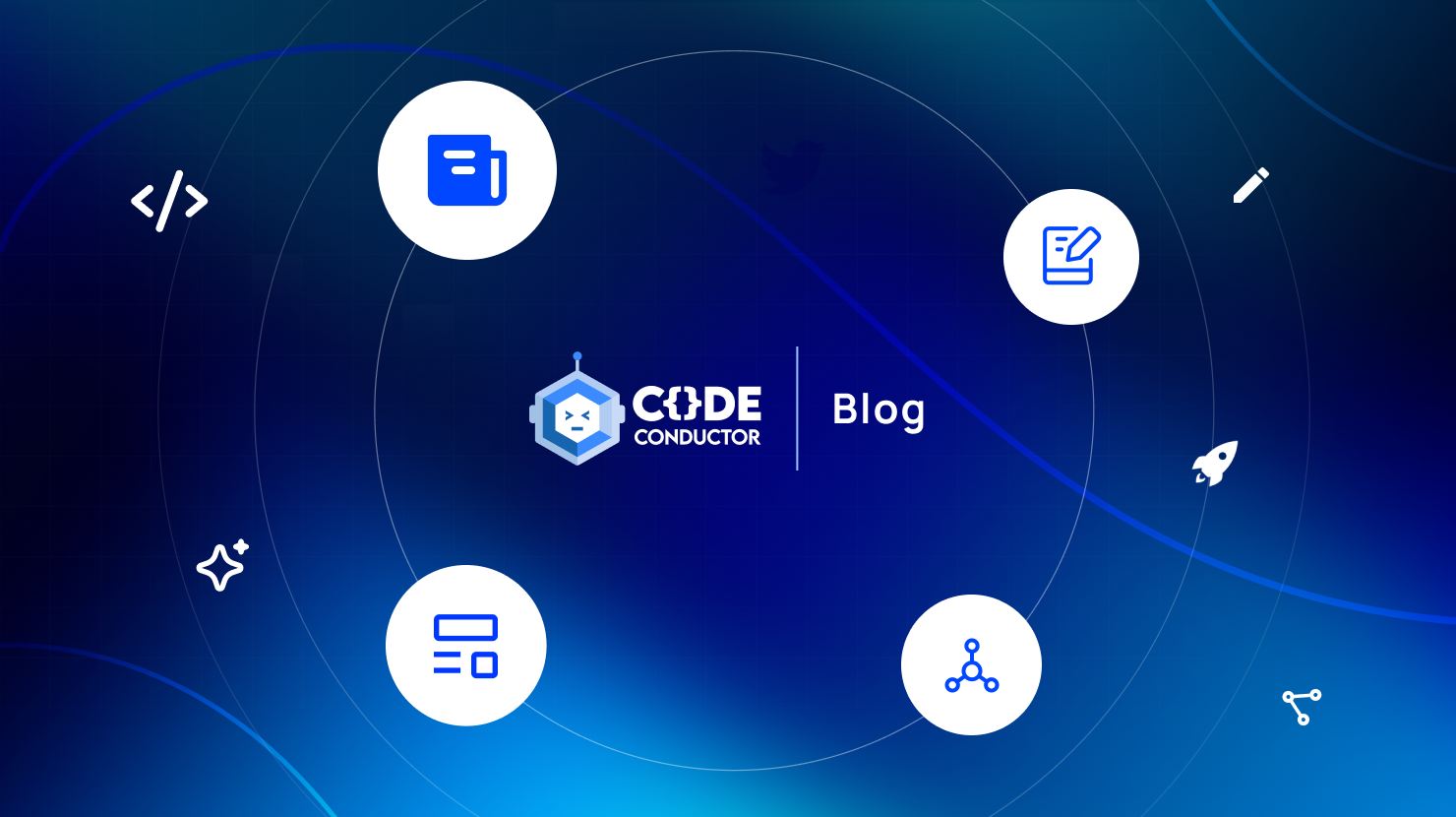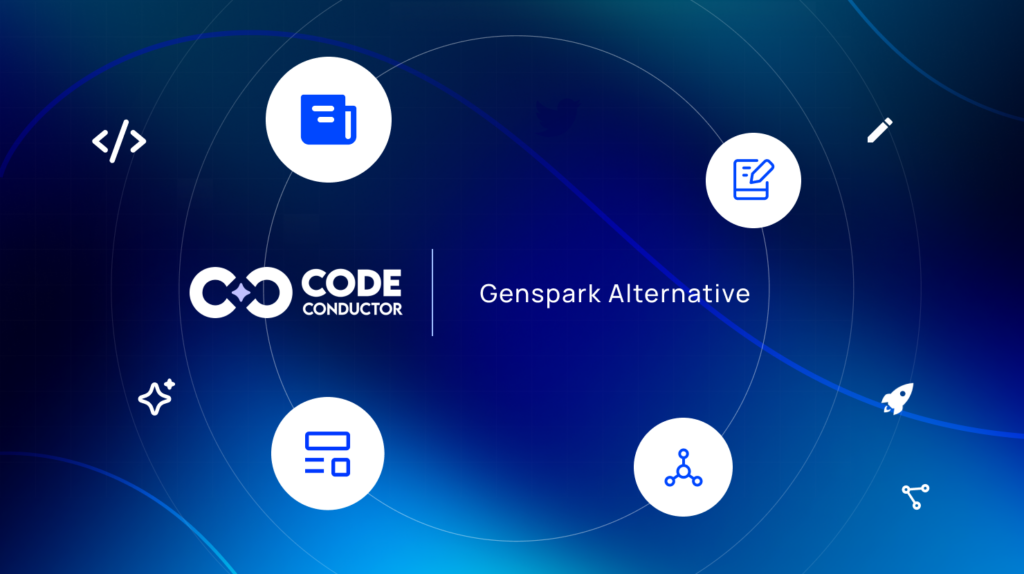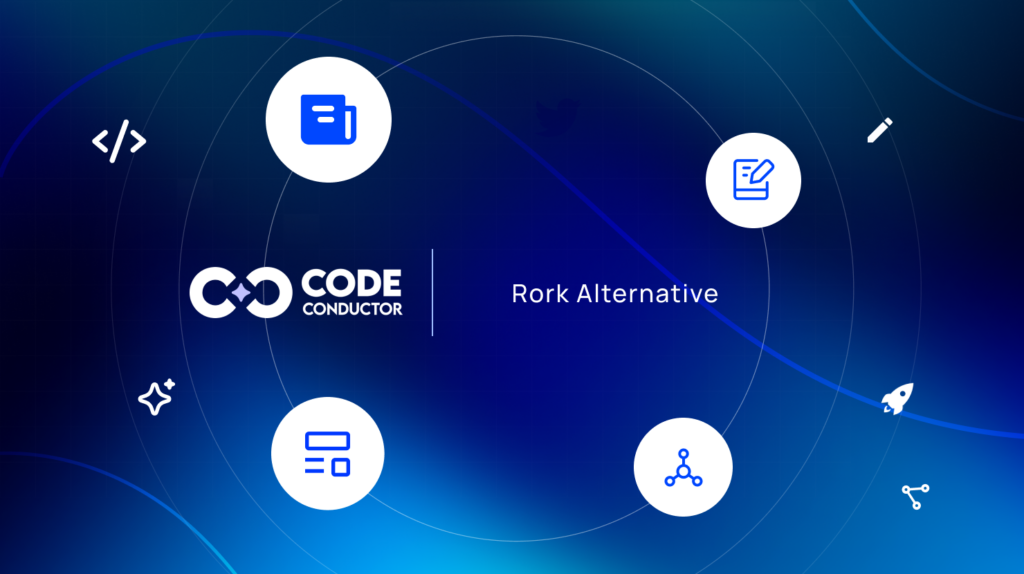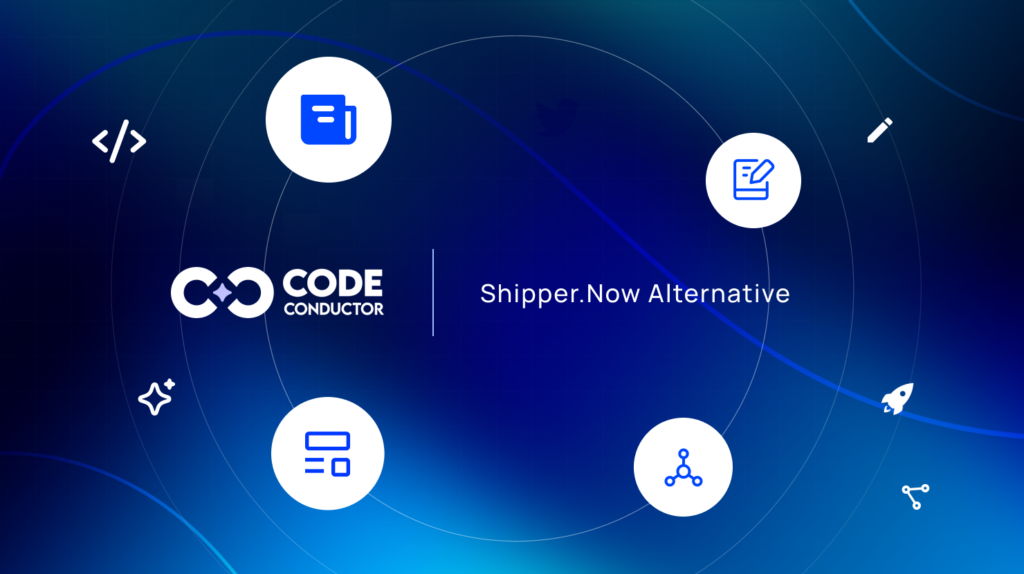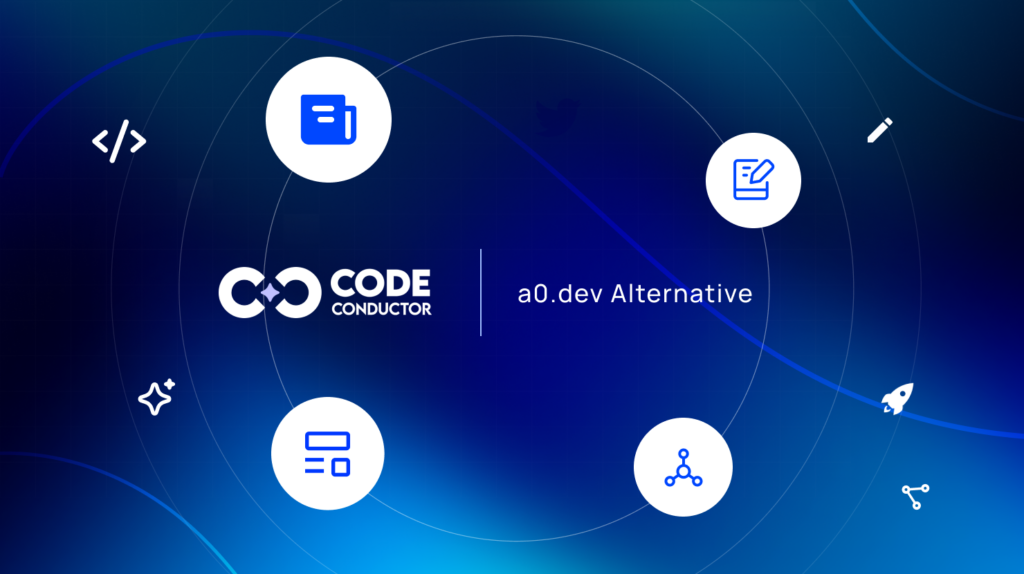What makes a startup stand out at Y Combinator’s Demo Day in 2025 – and why are investors laser-focused on this new wave of AI-native companies?
Spring 2025’s YC Demo Day wasn’t just a showcase of innovation; it was a signal flare for where venture capital, AI infrastructure, and developer tooling are headed next.
Among the dozens of presenting startups, a distinct pattern emerged: the dominance of LLM-first agent architectures, the rise of “Cursor for X” vertical SaaS platforms, and a resurgence of interest in robotics and silicon acceleration.
These aren’t isolated phenomena – they’re tightly connected to broader shifts in
- How businesses adopt contextual automation,
- How investors bet on AI-native workflows, and
- How developers rethink human-in-the-loop software orchestration.
For engineering teams, technical founders, and product-led growth operators, understanding these startups offers more than inspiration – it provides a real-time map of what’s gaining traction in the intersection of machine learning deployment, user-agent interfaces, and AI infrastructure investment trends.
In this breakdown, we’ll re-explore 11 of the most talked-about startups from YC’s Spring 2025 batch – not just by their pitch, but by their technical differentiation, funding traction, and strategic relevance to developers and investors alike.
In This Post
- Macro Trends Shaping Spring 2025
- 1. The Rise of LLM-Powered Agents
- 2. “Cursor for X” as the New Product Pattern
- 3. Robotics and Silicon Resurgence
- 1. Anvil – Visibility Platform for LLMs
- 2. Den – AI-Powered Enterprise Knowledge Agent
- 3. Atum Works – Wafer-Scale 3D Lithography for Semiconductors
- 4. Eloquent AI – Autonomous Operator for Financial Services
- 5. Sim Studio – Visual Builder for AI Agent Workflows
- 6. Scalar Field – AI-Powered Financial Terminal
- 7. Cactus – AI Business Assistant for Solopreneurs
- 8. Auctor – AI Agent for SaaS Implementation
- 9. Sygaldry – Quantum-Accelerated AI Servers
- 10. Vybe – “Vibe Coding” for Internal Apps
- 11. LLM Data Company – Agent Evaluation & Quality Platform
- YC Spring 2025 Startups – A Complete Comparison Table
Macro Trends Shaping Spring 2025
Y Combinator’s latest batch wasn’t just another collection of tech experiments — it was a reflection of systemic shifts in developer tooling, investor sentiment, and enterprise software expectations.
Three macro trends dominated both pitch decks and investor conversations:
1. The Rise of LLM-Powered Agents
Startups are no longer building general chatbots. They’re crafting domain-specific AI agents—purpose-built systems that interact contextually within vertical environments, such as Slack, financial terminals, or robotics control. Whether it’s Den transforming enterprise knowledge search or Eloquent AI handling full-stack customer operations, the message is clear: intelligence is shifting from general platforms to vertical agents with native context memory.
2. “Cursor for X” as the New Product Pattern
Inspired by developer-favorite tools like Cursor (a coding-focused AI IDE), many startups are now applying that same UX pattern to new spaces:
- Finance (Scalar Field),
- Legal ops (Sim Studios), and even
- Onboarding workflows (Auctor).
This trend highlights a new product design principle: AI should not only answer but also enable focused, fluid execution within existing workflows.
3. Robotics and Silicon Resurgence
Beyond software, YC’s batch reintroduced investor excitement in applied robotics and advanced computing. Atum Works pitched a 3D transistor platform that could redefine edge computing. Sygaldry, led by quantum computing veteran Chad Rigetti, showcased quantum-enhanced acceleration for AI inference.
These ventures indicate a renewed appetite for deep tech infrastructure, particularly where LLM bottlenecks meet real-world latency or hardware constraints.
These trends don’t just highlight where technology is going – they illuminate why these 11 startups are strategically positioned to capture investor attention and developer adoption.
Let’s now explore each company in detail, focusing on the funding traction, technical architecture, and strategic positioning that make them stand out.
1. Anvil – Visibility Platform for LLMs

- Funding & Traction: YC-backed, building enterprise pilots, gaining attention for “LLM-native SEO” positioning.
- Technology Differentiator: Analytics suite tracking brand discoverability across ChatGPT, Claude, and Gemini.
- Market Opportunity: Rising demand for visibility in LLM-generated answers.
- Competitive Risk: Must adapt to LLM API shifts and maintain model compatibility.
- Founder Insight: Daniel Siryakov, ex-PM, and MLE, leads products with a contextual analytics focus.
2. Den – AI-Powered Enterprise Knowledge Agent

- Funding & Traction: Highlighted by investors as one of the most promising enterprise AI startups in the Spring 2025 batch.
- Technology Differentiator: A “Cursor for knowledge workers” that integrates with Slack and Notion to enable contextual, AI-powered assistance.
- Market Opportunity: Meets growing demand for embedded AI in workplace productivity tools across knowledge-driven teams.
- Competitive Risk: Faces competition from Slack AI and Microsoft Copilot, needing clear differentiation in integration depth and UX.
- Founder Insight: The team envisions deploying “trillions of AI agents into the mainstream workforce,” making AI accessible for everyday productivity.
3. Atum Works – Wafer-Scale 3D Lithography for Semiconductors
- Funding & Traction: YC X25 company with in-house fabrication lab; built 3D nano-printer; signed LOI with NVIDIA.
- Technology Differentiator: Enables vertical transistor stacking with 100 nm resolution via multi-material 3D lithography.
- Market Opportunity: Solves scaling bottlenecks in computing, sensors, and AI silicon as Moore’s Law slows.
- Competitive Risk: Must scale wafer-level production in a domain dominated by ASML and TSMC.
- Founder Insight: Founded by Caltech/NASA engineers; backed by top advisors from TSMC, Intel, and Caltech.
4. Eloquent AI – Autonomous Operator for Financial Services
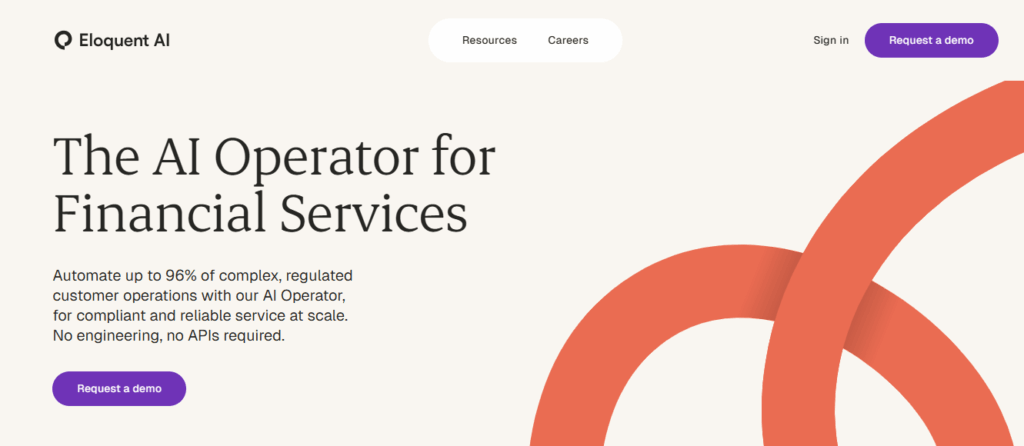
- Funding & Traction: YC-backed; hit $500K ARR in four weeks, serving fintech and insurance clients.
- Technology Differentiator: Domain-specific LLM agents that observe, reason, and execute end-to-end ops tasks.
- Market Opportunity: Automates regulated workflows (KYC, claims, account freezes) with audit-ready AI.
- Competitive Risk: Must ensure compliance, and integration accuracy, and avoid hallucinations in production.
- Founder Insight: Built by Tugce Bulut and Aldo Lipani to handle “doing, not just talking” in regulated ops.
5. Sim Studio – Visual Builder for AI Agent Workflows
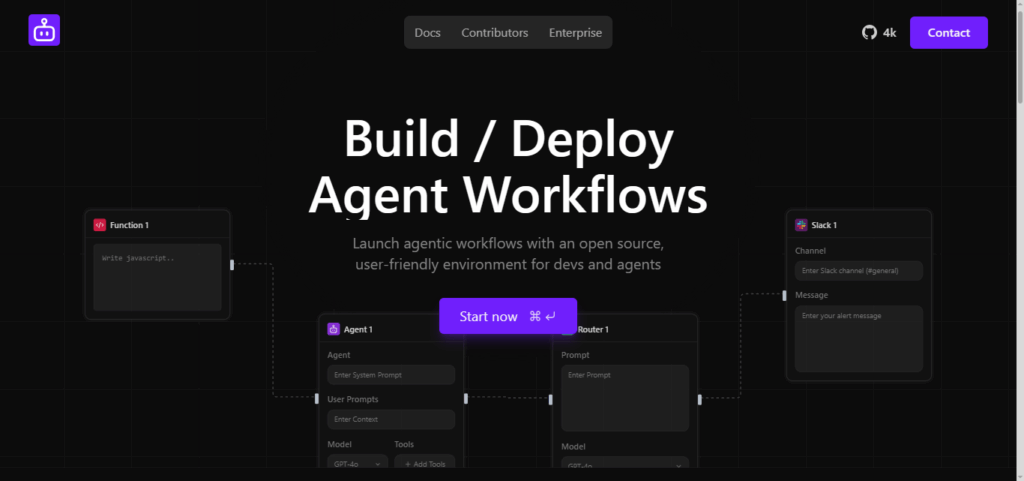
- Funding & Traction: YC-backed; 4k+ GitHub stars, 5k+ users waitlisted on hosted version.
- Technology Differentiator: Drag-and-drop canvas for building, debugging, and deploying multi-agent workflows.
- Market Opportunity: Serves AI-native teams building internal tools, R&D flows, and custom automation.
- Competitive Risk: Competes with n8n, Flowise; must win on UX, agent orchestration, and traceability.
- Founder Insight: Built by Emir Karabeg and Waleed Latif to make agent logic transparent and production-ready.
6. Scalar Field – AI-Powered Financial Terminal
- Funding & Traction: YC-backed; $74K MRR from ~800 traders, 34K+ signups.
- Technology Differentiator: LLM agents for real-time alerts, backtesting, and multi-hop trading workflows.
- Market Opportunity: Modern alternative to Bloomberg for AI-native analysts and quant teams.
- Competitive Risk: Competes with entrenched terminals; must win on usability and AI fluency.
- Founder Insight: Built by Ramakant Yadav and ex-trader Amandeep Singh to help traders test, not just view, financial data.
7. Cactus – AI Business Assistant for Solopreneurs

- Funding & Traction: YC-backed platform (operated by Cravd, Inc.), gaining adoption from solo professionals (e.g., consultants, chefs); spotlighted in Forbes.
- Technology Differentiator: Features Pam, an AI assistant that automates inquiry handling, client qualification, bookings, billing, and storefront management via natural voice/text interaction.
- Market Opportunity: Targets over 50 million solo business owners globally, helping them run operations without hiring staff.
- Competitive Risk: Challenges include ensuring conversational reliability, data privacy, and integration with payment/billing systems.
- Founder Insight: Designed by Ajith Govind and Avinash Joshi to handle routine tasks so founders can focus on their craft.
8. Auctor – AI Agent for SaaS Implementation
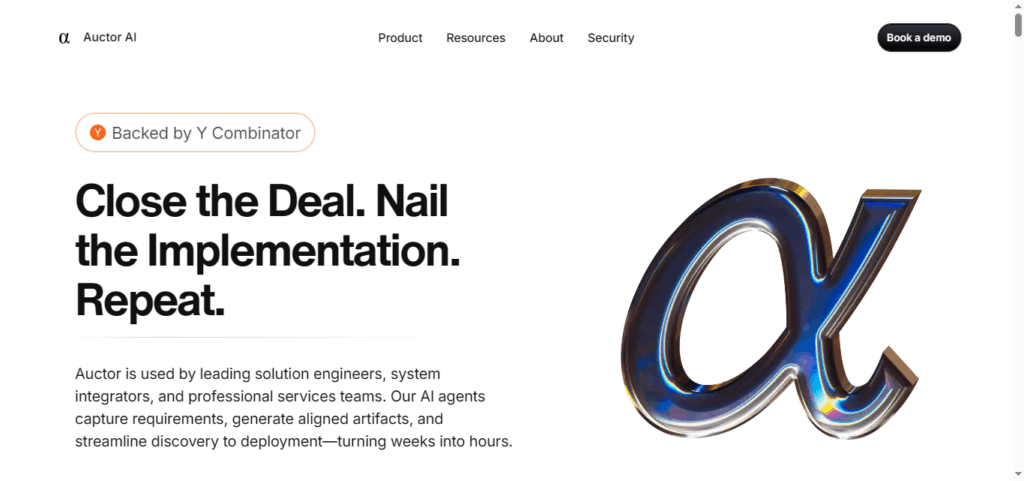
- Funding & Traction: YC Spring 2025 company (~$500K raised); actively used by solution engineers at AWS, SAP & ServiceNow.
- Technology Differentiator: AI agents that capture technical requirements, auto-generate SOWs, work plans, and documentation—compressing implementation cycles from weeks to hours.
- Market Opportunity: Targets the $200B+ SaaS implementation market burdened by high consulting costs.
- Competitive Risk: Must outperform traditional RPA and consulting firms by demonstrating faster, aligned deployments.
- Founder Insight: Founded by William Sun, Matthew Blackburn, Anthony Ng-Thow-Hing, and Xinan Rahman—built as an “intelligence layer” to streamline enterprise delivery.
9. Sygaldry – Quantum-Accelerated AI Servers

- Funding & Traction: YC-backed; founded by Chad Rigetti, now shipping hybrid quantum-classical server prototypes.
- Technology Differentiator: Combines multi-qubit systems to accelerate LLM training and inference more efficiently than GPU-only stacks.
- Market Opportunity: Targets AI infra teams seeking faster, cheaper, and more energy-efficient model deployment.
- Competitive Risk: Must prove stability, scalability, and cost advantages over classical hardware.
- Founder Insight: Rigetti and Idalia Friedson positions quantum-classical servers as the natural successor to traditional AI compute.
10. Vybe – “Vibe Coding” for Internal Apps
- Funding & Traction: YC Spring 2025 company founded by repeat entrepreneurs Quang Hoang and Fabien Devos. Demonstrated fast internal app prototyping and garnered investor praise during Demo Day.
- Technology Differentiator: Enables non-technical users to build full-stack internal web apps using pre-built integrations (Gmail, GitHub, Jira), SSO, and AI tools—through conversational “vibe coding.”
- Market Opportunity: Serves organizations facing “work about work” challenges via lightweight internal tools and automation.
- Competitive Risk: Must ensure data security, SSO integration, and scalability to support enterprise-grade internal apps.
- Founder Insight: Built by two-time YC founders Fabien Devos and Quang Hoang to make internal app building accessible without engineering bottlenecks.
11. LLM Data Company – Agent Evaluation & Quality Platform
- Funding & Traction: YC Spring 2025 company engaged AI-first platforms such as Perplexity and Rewind since demo day.
- Technology Differentiator: Provides tooling for multi-round RL-based evaluation—automated agent scoring, testing, and benchmarking frameworks.
- Market Opportunity: Fills a growing need for production-grade quality assurance in deployed LLM agents across enterprise and consumer applications.
- Competitive Risk: Faces challenges in scaling evaluation pipelines and maintaining high annotation quality at speed.
- Founder Insight: Built by Daanish Khazi, Gavin Bains, and Joseph Besgen—who emphasize that the platform is “the QA layer for generative AI,” providing structure and reliability where manual testing and generic model judges fall short.
YC Spring 2025 Startups – A Complete Comparison Table
| Startup | Funding & Traction | Technology Differentiator | Market Opportunity | Competitive Risk | Founder Insight |
|---|---|---|---|---|---|
| Anvil | YC-backed, building enterprise pilots | Tracks brand visibility across LLMs | SEO for AI-generated answers | Adapting to LLM API changes | Daniel Siryakov (ex-PM, MLE) |
| Den | Highlighted by investors in Spring 2025 | “Cursor for Slack/Notion” | Embedded AI in workplace tools | Competing with Slack AI, Copilot | The team envisions deploying “trillions” of agents |
| Atum Works | In-house fab lab; LOI with NVIDIA | 100nm 3D lithography for vertical stacking | Post-Moore’s Law compute scaling | Competing with ASML, TSMC | Caltech/NASA engineers, top hardware advisors |
| Eloquent AI | $500K ARR in 4 weeks | End-to-end agents for regulated ops | KYC, claims, support automation | Compliance and hallucination control | Tugce Bulut and Aldo Lipani |
| Sim Studio | 4k GitHub stars; 5k waitlisted users | The drag-and-drop agent workflow builder | Internal tools, R&D orchestration | UX vs. n8n, Flowise | Emir Karabeg and Waleed Latif |
| Scalar Field | $74K MRR, ~800 traders, 34K+ signups | AI agents for backtesting and alerts | Modern Bloomberg terminal | NLP precision vs. incumbents | Amandeep Singh, Ramakant Yadav |
| Cactus | Solo founder adoption, Forbes feature | Voice/text agent “Pam” for biz ops | 50M+ solopreneurs worldwide | Reliability and data handling | Ajith Govind and Avinash Joshi |
| Auctor | Used by AWS, SAP, ServiceNow | AI auto-generates SOWs and onboarding docs | $200B SaaS onboarding market | Must beat RPA & consulting speed | William Sun, Matthew Blackburn, Anthony Ng-Thow-Hing, Xinan Rahman |
| Sygaldry | Founded by Chad Rigetti; hybrid servers launched | Quantum-classical acceleration for LLMs | Cost-effective AI infrastructure | Quantum stability, cost parity | Chad Rigetti, Idalia Friedson |
| Vybe | Demo Day standout; built by serial founders | Conversational app builder with integrations | Internal tooling via no-code AI | Data handling and scalability | Quang Hoang and Fabien Devos |
| LLM Data Company | Serving Perplexity, Rewind | RL-based QA for agents | LLM testing and benchmarking needs | Scaling eval accuracy | Daanish Khazi, Gavin Bains, Joseph Besgen |
Why CodeConductor.ai Outpaces YC’s New Wave of AI Agent Platforms
While startups like Den, Sim Studio, and Eloquent AI showcase impressive advances in LLM agents from Slack-based assistants to visual workflow builders, they often focus on a single use case, surface, or integration. Most of these tools are designed to solve one problem for one team – whether it’s automating a support ticket flow, setting up an onboarding agent, or building a basic internal tool.
CodeConductor.ai, on the other hand, was built to orchestrate every AI-driven process in your stack, not just one.
Rather than offering yet another chatbot or agent IDE, CodeConductor is a full-fledged platform that allows businesses to deploy intelligent agents across multiple workflows, tools, and environments – with complete memory persistence, full observability, and zero vendor lock-in.
It empowers teams to launch internal tools, customer-facing apps, automation sequences, or even custom LLM applications, all from a unified workspace.
What makes CodeConductor stand out is its balance between power and flexibility:
- You get the simplicity of visual app building, with the depth of full-code customization when needed.
- You can deploy it anywhere, ensuring full control over data and compliance.
- You gain not just agents, but agent ecosystems, able to recall past interactions, route requests between tools, and deliver performance with built-in monitoring, versioning, and CI/CD support.
In a market where most AI startups offer a single-use product, CodeConductor is a foundational platform for building, scaling, and governing entire AI-powered systems.
Ready to Build with AI That Actually Works?
If you’re serious about moving beyond prototypes and scaling real AI workflows across teams, tools, and time CodeConductor.ai gives you the power to do it right. From multi-agent orchestration and persistent memory to custom deployments and CI-ready infrastructure, it’s everything today’s LLM-native startups are aiming for, already built and battle-tested.
Don’t settle for fragments. Deploy the full stack.
👉 Start building with CodeConductor.ai —Book a walkthrough with our product team.

Founder CodeConductor

